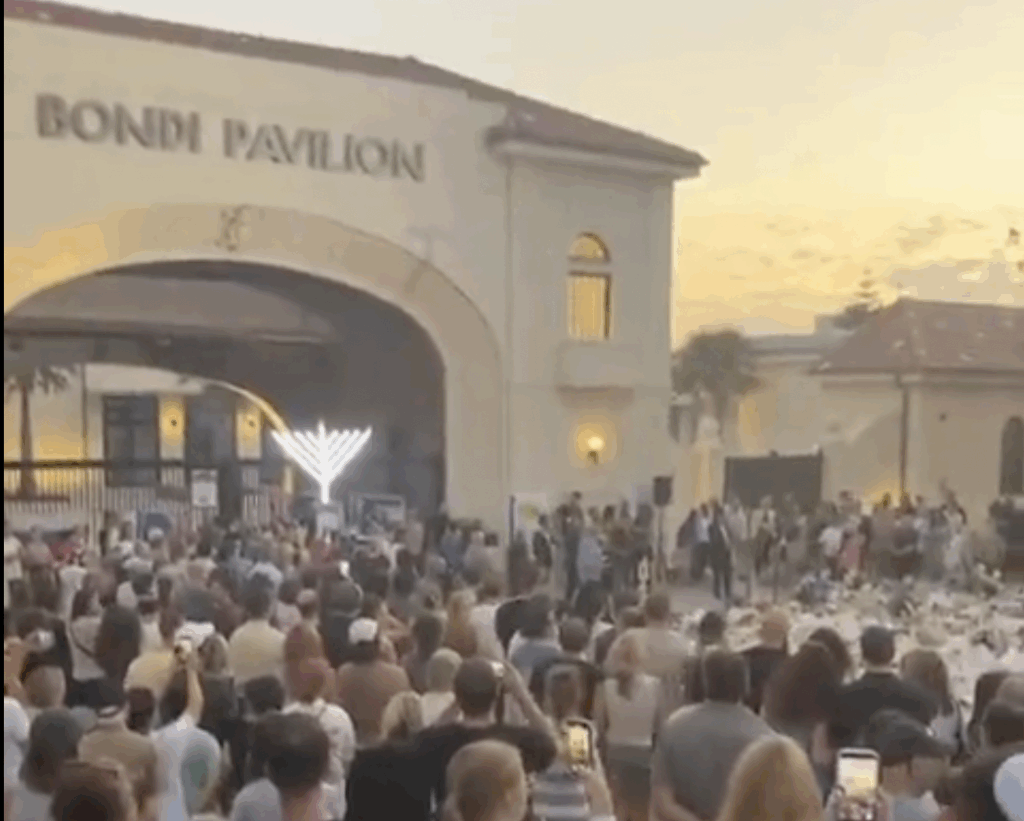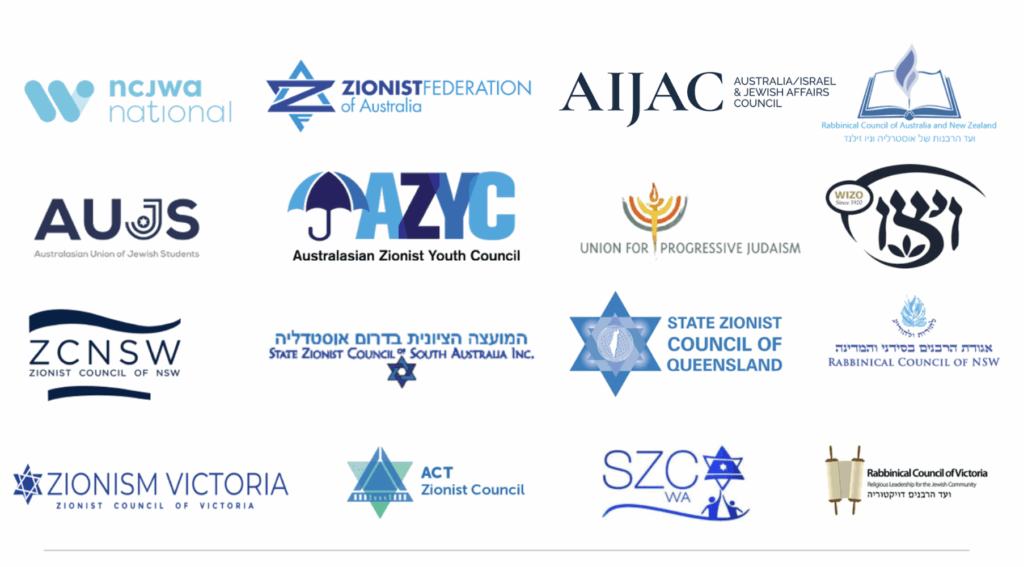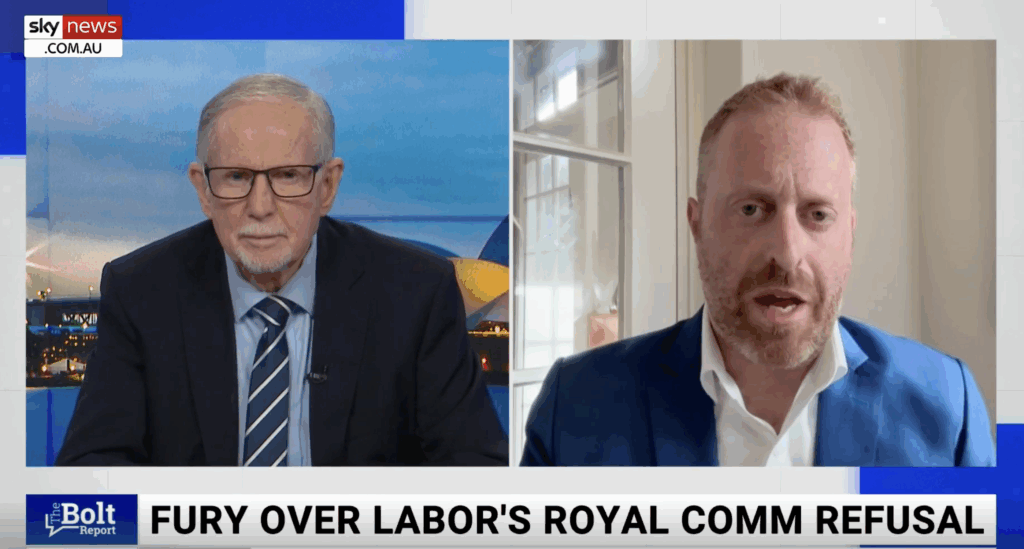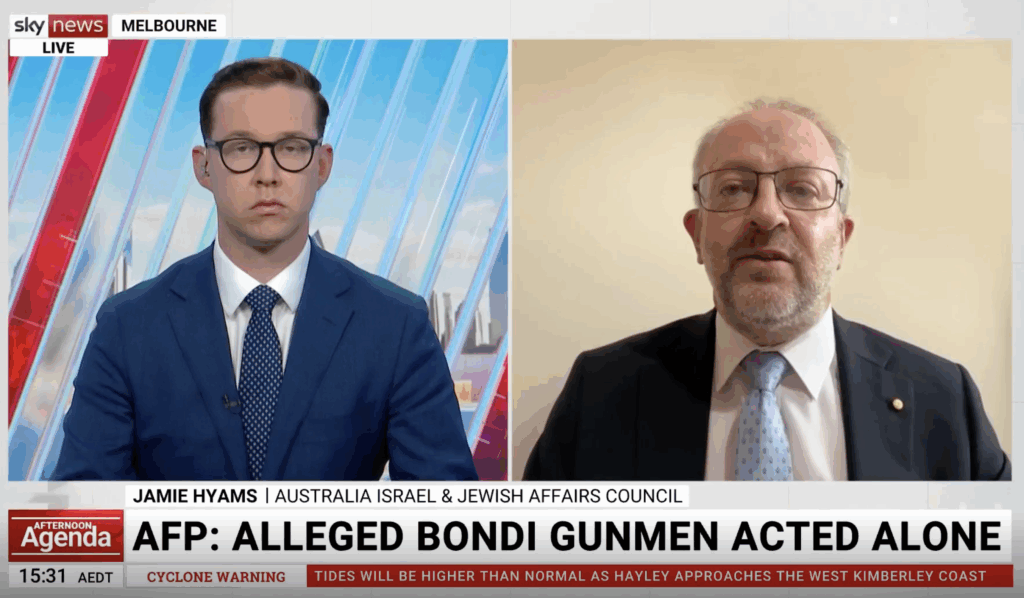UPDATES
Fears of West Bank unrest amidst PA succession struggle
September 9, 2022 | AIJAC staff
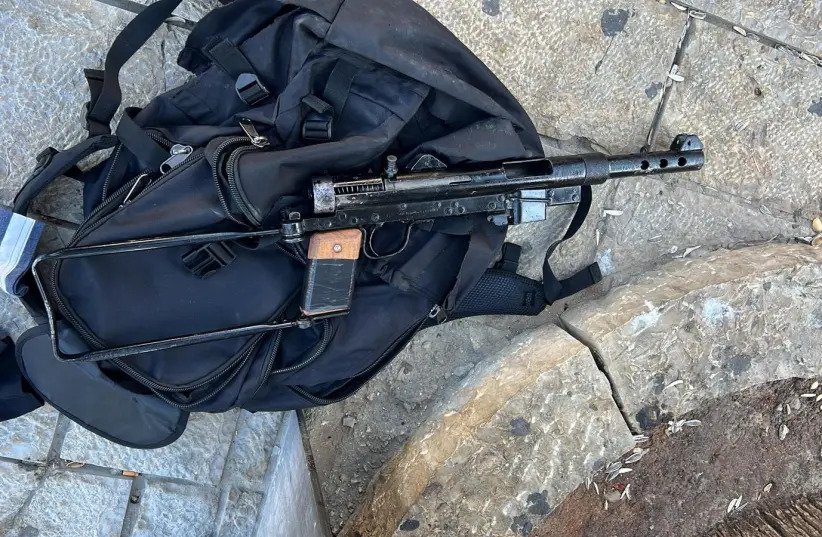

09/22 #01
This Update focuses on the increasing warning coming from Israeli and other security experts that terrorist activity from the West Bank is likely to heat up considerably over the coming months. This is in part because the Palestinian Authority (PA) is becoming increasingly preoccupied with the succession to ageing PA President Mahmoud Abbas, and losing its ability to impose its authority on parts of the northern West Bank.
We lead with a “flash briefing”, published by the Foundation for Defense of Democracies, summarising the analysis coming from security experts and officials concerning the West Bank terror threat. This notes the sharp uptick in arrests and thwarted terror attacks over recent months, and the “fertile ground” for terrorism experts say is being created by PA governance failures. It also canvasses the Palestinian claim that IDF operations to stop terrorism only provoke more violence, and why the IDF feels it has no choice. For this essential introduction to the debates over West Bank terror concerns, CLICK HERE.
Next up are the views on the subject from Col. (res.) David Hacham, who served as an adviser on Arab affairs to seven Israeli defence ministers, interviewed by Yaakov Lappin of JNS.org. Hacham warns that a tipping point to a major escalation could happen very quickly, and explains why at some length. He also explores the role of Hamas – which is seeking to play a double game by maintaining quiet in Gaza, but seeking both to gain credibility as a “resistance movement” and undermine the PA by provoking violence in the West Bank and Jerusalem instead. For Hacham’s analysis in full, CLICK HERE.
Finally, Arab Affairs correspondent Yoni Ben Menachem reviews the latest manoeuvres by Hussein al-Sheikh, who it is clear is Mahmoud Abbas’ preferred choice to succeed him as PA president. Al-Sheikh, who has been Abbas’ right-hand man for many years, is currently trying to set up a general conference of the ruling Fatah movement in which he can seize the leadership roles of the party, and remove his rivals from positions of influence. Ben Menachem also reviews the reported arrangements in place between Abbas and al-Sheikh to secure the succession, and why al-Shiekh remains much less popular among the Palestinian public than other prominent figures, such as imprisoned terrorism coordinator Marwan Barghouti. For the details of the political side of the PA succession struggle, CLICK HERE. Ben Menachem also had a more recent piece outlining PA fears and accusations against the IDF related to the current West Bank unrest.
Readers may also be interested in…
- Hamas’ latest calls for more terrorism from the West Bank. Meanwhile, Israeli Defence Minister Benny Gantz is promising to step up IDF operations there.
- A stunning investigative report from the Jewish Chronicle revealing how corruption ruined plans to build two hospitals, funded by foreign aid, for West Bank Palestinians.
- Three experts from the Washington Institute for Near East Policy – Jonah Shrock, Gabriel Epstein, and David Makovsky – review the dire financial state of the PA, and what can be done about it.
- Israeli military analyst Ehud Eilam asks whether last month’s Gaza conflict meant Israel has now found a way to win the battle against Iranian-supported terror groups.
- Comments on the significance of the release of an IDF investigation suggesting it was more likely than not that it was an Israeli bullet that killed Palestinian journalist Shireen Abu Akleh in May from Israeli security affairs writers Seth Frantzman and Ron Ben Yishai.
- A new IDF Chief of Staff has been nominated – Major-General Herzl (Herzi) Halevi.
- Some examples from the many stories and comments now appearing at AIJAC’s daily “Fresh AIR” blog:
- AIJAC’s statement mourning the passing of Queen Elizabeth II. Here also are some other reactions from across the Jewish world and from Israeli leaders.
- Colin Rubenstein argued in a piece in the Daily Telegraph that the Iran nuclear deal currently being discussed looks like a terrible bargain with dangerous implications.
- Jamie Hyams explained the realities behind Gaza’s ongoing tragedy in the Jakarta Post.
- Oved Lobel argued that Russia’s allies Iran and Venezuela are not a solution to the energy crisis being created by Russia’s invasion of Ukraine.
- Ran Porat on the need to rethink the role of UNIFIL, the UN peacekeeping force in Lebanon.
- Judy Maynard reveals the latest aggressive shilling for the Chinese Communist Party by the Australian Citizen’s Party (ACP), the Australian followers of notorious American conspiracy theorist and convicted fraudster Lyndon LaRouche.
- An AIJAC video profile of Israel’s fourth Prime Minister, Golda Meir.
Israel Thwarts Terror Plots in West Bank, Yet Threats Continue
Foundation for Defense of Democracy
Flash Brief, September 7, 2022
Latest Developments
Israel’s Chief of the General Staff Aviv Kohavi stated on Monday that since late March, the Israel Defense Forces (IDF) have apprehended approximately 1,500 wanted Palestinians in the West Bank and thwarted “hundreds of attacks.” Kohavi’s statement highlights the significant threat posed by Palestinian terrorist organizations in the territory, including Hamas, Palestinian Islamic Jihad (PIJ), al-Aqsa Martyrs Brigades, and others.
Expert Analysis
“The sharp uptick in IDF activity in the West Bank is a direct result of a spike in Palestinian terrorist activity. Mahmoud Abbas’s Palestinian Authority has lost control of pockets of the West Bank, and the result has been terror attacks against Israelis and increased lawlessness on both sides of the green line. The IDF is working overtime on a terrorist-containment strategy to ensure that the West Bank does not fall into the hands of Iran-backed terror groups.”
– Enia Krivine, Senior Director of FDD’s Israel Program and National Security Network
“It’s clear the Palestinian Authority’s control over areas of the West Bank has eroded. The loss of control has led to an inability to fight terrorism in the PA’s own backyard. Israel is supporting the PA by carrying out operations against organizations such as Palestinian Islamic Jihad, which continues to gain ground as the PA loses control in areas of the West Bank.” – Joe Truzman, Research Analyst, FDD’s Long War Journal
A Long-Simmering Threat
For years after the 2000-2005 intifada, areas of the West Bank such as Jenin were relatively peaceful and benefited from Israeli Arab tourism. However, in recent years, the Palestinian Authority’s (PA) rule over these areas has weakened. Some of this stems from frustration with the leadership of PA President Mahmoud Abbas, who was elected in 2005 to serve a four-year term but has refused to hold presidential elections since he took power. Some of this also stems from a deliberate strategy, launched by Hamas and PIJ, to destabilize the West Bank as part of a broader bid to gain greater control.
The PA Is Complicit in Attacks Against Israel
Kohavi said the PA’s inability to “properly govern” areas under its control has provided “fertile ground” for terrorism. The U.S.-supported Palestinian Security Forces (PSF) cannot yet operate at the same level of professionalism as the IDF. In some cases, PA intelligence officers, PA customs police, and members of the PSF have been complicit in attacks against the IDF since last year.

Jenin, a city in the north of the West Bank, has become a hotbed of terrorism as PA rule over the area weakened over recent years. (Photo: Wikimedia Commons | Licence details)
The IDF Has Increased Operations in the West Bank to Curb the Chaos
The uptick in terror activity in the West Bank has occurred primarily in the northern West Bank cities of Jenin and Nablus. Militants have established a joint operations room in Jenin to respond to IDF incursions. This fusion center enables Palestinian terrorists from different (and sometimes competing) factions to fight the IDF together. The result is a recent spike in clashes between IDF troops and Palestinian militants.
Chicken and Egg
Some Palestinians are warning that continued Israeli operations in the West Bank could provoke a wider conflict. On the other hand, Israeli security services assert that if the IDF does not neutralize the threats in the lawless pockets of the West Bank, the problem will only worsen. This is a conundrum that both the PA and Israel will need to address separately and together, particularly if the goal is to prevent a broader crisis.
Judea and Samaria near ‘tipping point’ into carnage, former IDF officer warns
With the power struggle in the Palestinian Authority in full swing, Israel heading to its fifth election in three years and Hamas waiting in the wings, conditions are ripe for a serious security deterioration, says Arab affairs expert IDF Col. David Hacham.
BY YAAKOV LAPPIN
JNS.org, September 6, 2022

The situation in Judea and Samaria is approaching a dangerous tipping point, according to IDF Col. (res.) David Hacham, a senior research associate at the MirYam Institute.
Hacham, a former adviser on Arab affairs to seven Israeli defense ministers, told JNS that several factors could converge to quickly generate an escalation in the security situation in the area.
“We cannot rule out the possibility of a substantial escalation, reaching the point of popular unrest accompanied by a heightened level of terror attacks on Israeli military and civilian targets,” he said.
One of the key factors raising the odds of violence is the growing instability in the Palestinian Authority that stems from the power struggle raging over who will succeed P.A. chairman Mahmoud Abbas, 86, whenever he exits the political scene.
“He is nearing the end of his tenure as P.A. chairman, as Fatah leader and PLO Executive Committee head—positions he has held since he replaced Yasser Arafat after his death in November 2004,” said Hacham.
“Some of the candidates to succeed Abbas are backed by armed militias that carry out their orders. As a result, political strife may flare up and turn into violent eruptions, though the possible successors may also be able to settle their differences without a civil war. The most likely scenario is a limited internal clash,” he said.
If the competition for the succession gets too bloody, Israel, Arab states such as Jordan and Egypt, as well as the United States and the European Union, might intervene, he added.
Faced with these internal divisions, factionalism based on regional and tribal/clan identities will likely intensify within P.A.-ruled territory. The first sparks are already visible, according to Hacham.
“Individual behavior [in these areas] is governed more by traditional tribal/clan rules than by the judicial system or the P.A.’s security forces,” he said. “Tensions in the Palestinian arena are connected to the P.A.’s weakness, with P.A. security personnel fearful of dealing with terrorist gunmen and avoiding decisive action against them on the ground.”
The emergence in northern Samaria of a new generation of terrorists is a response to the power vacuum resulting from the P.A.’s weakness, said Hacham, who added that widespread discontent among Palestinians over the freeze in the diplomatic process with Israel adds fuel to the fire.
“This is especially true in Samaria, in Jenin and Nablus, which have become extremist-terrorist cities in Israeli eyes, and nationalist-revolutionary cities in Palestinian eyes. It’s also happening to a certain extent further south, in Judea, in Hebron,” he said.
“Armed attacks have become practically an everyday issue, and they usually target IDF positions, checkpoints and Israeli civilians in the sector,” he said.
“Almost every IDF operation in Jenin and Nablus, as well as in villages in the area, is accompanied by gunfire. This also indicates that terrorists have easy access to automatic rifles,” he added.
“Because this is sporadic, ineffective fire by young terrorists lacking in skill and operational experience, the majority of these shooting incidents result in no casualties among Israeli forces. These terrorists, whose organizational allegiance is unclear, are supported financially and militarily by established Palestinian terror factions,” he added.

MirYam Institute strategic expert Col. (res.) David Hacham: The emergence in northern Samaria of a new generation of terrorists is a response to the power vacuum resulting from the PA’s weakness
However, as the firefights continue, the terrorists will likely gain experience and confidence, making them significantly more dangerous.
“They are heavily influenced by social media networks, which glorify and elevate them to the status of heroes. In effect, these are localized terror operations carried out by inexperienced youths who were not there during the Second Intifada [in 2000-2005]. But we must not underestimate the danger. It is reasonable to expect that as these terrorists gain operational experience, confidence would grow within their ranks, increasing the risk of Israeli casualties,” said Hacham.
As a consequence, it is vital that the IDF increase its operational readiness and seize the initiative through increased security raids, he said. Israel may also have to consider a broader counterterrorism offensive to disrupt the wave of attacks, he added.
Almost every night, soldiers are shot at during arrest operations in Palestinian cities and towns, at levels not seen previously. After entering these hotspots, IDF units are met with small arms fire, stones and firebombs. Some armed terrorists barricade themselves inside buildings, compelling the IDF to employ means such as shoulder-fired missiles to force their surrender.
A minority of the gunmen are members of the Palestinian Authority’s security forces, said Hacham.
Hamas’s double game
On the one hand, Hamas “incites terrorism and attempts to orchestrate, from Gaza, terror attacks in Judea and Samaria, while maintaining a ceasefire in Gaza, where it is sovereign and must consider the needs of over two million Gazan civilians,” said Hacham.
And “if conditions for them improve, Hamas in Judea and Samaria, as well as Palestinian Islamic Jihad, can strengthen their credibility as ‘resistance’ movements, undermine the P.A,’s rule on the ground, and force it to confront Israel, further harming it, just as Abbas’s reign comes to an end,” he continued.
One of the key staples of propaganda for Hamas and other radical Islamist movements is the claim that the Al-Aqsa mosque in Jerusalem is threatened by Israeli Jews.
“The Temple Mount in Jerusalem is undoubtedly one of the most sensitive elements in this picture, with any claims of harm to the Al-Aqsa Mosque causing an emotional firestorm among Palestinians. Any future incidents involving the Temple Mount might result in severe, uncontrollable escalation, as well as escalation in organized terror attempts by armed organizations,” said Hacham.
He flagged the Jewish High Holidays, which begin on Sept. 25, as well as regular visits by Jews to the Temple Mount, as flashpoints that require special readiness.
“Clashes near and on the Temple Mount could reignite Palestinian charges of ‘settler provocations,’ as they have in the past. Palestinian media sources and senior religious authorities continue to incite against Israel, using accusatory phrasing that refers to Jewish visits to the site as ‘settlers raids on the Al-Aqsa mosque,’” said Hacham.
“This is part of a planned maneuver to change the historic and legal status of the Temple Mount, which the terror organizations believe is solely under Islamic ownership. The potential of a religious war exists here,” he added.
Three Fatah camps locked in power struggle
The main unknown when it comes to the P.A.’s instability concerns who will succeed Abbas and what will happen in the Palestinian arena once he leaves. The power struggle is growing more and more acute.
According to Hacham, three camps are competing for power within the Fatah movement.
The first is the Abbas loyalist camp, which is led by Palestinian Authority Civilian Affairs Minister Hussein al-Sheikh, whom Abbas recently named as secretary-general of the PLO Executive Committee. This maneuver helped to clarify Abbas’s preference regarding his successor—though he has not said it openly, it is now clear that al-Sheikh is his choice.
The appointment provoked significant opposition among senior Fatah members who also aspire to reach the top of the pyramid. Despite his status as the frontrunner in the succession battle, al-Sheikh does not have widespread support in Fatah or on the Palestinian street, where he is labeled a collaborator with Israel, said Hacham.
The second camp includes figures such as Mahmoud al-Aloul, Abbas’s deputy in Fatah; Jibril Rajoub, secretary-general of the Fatah Central Committee, and P.A. Prime Minister Mohammad Ibrahim Shtayyeh, all of whom have reached agreement on a number of issues, enabling them to coordinate their positions on a range of affairs.
The third group consists of a reformist stream and is led by Muhammad Dahlan, the former head of P.A. security forces in Gaza , who was expelled from Fatah in 2012 and lives in exile in Abu Dhabi.
Meanwhile, the Islamist forces, led by Hamas, are eyeing the P.A.’s instability and looking for an opening to bolster their power in the West Bank at Fatah’s expense.
Another factor contributing to the lack of stability in the area is Israel’s political paralysis, said Hacham.
“In many ways, Abbas is already a lame duck leader who is unpopular on the Palestinian street. On the other side of the fence, an Israeli caretaker government is in power, and it is unable to make major decisions regarding the restart of the diplomatic process with the Palestinian Authority. Israel is poised to hold its fifth election in three years, the outcome of which will dramatically determine Israeli policy toward the Palestinians,” said Hacham.
“This outlook causes many Palestinians to feel that the diplomatic progress is stymied by an impenetrable roadblock, fueling greater rage on the Palestinian street,” he said.
Hussein al-Sheikh Plans to Take Over the Fatah Movement

Hussein al-Sheikh with PA President Mahmoud Abbas, who has unofficially designated him as his successor (Palestinian Media)
- Hussein al-Sheikh, the designated successor of Mahmoud Abbas, has begun an essential process of seizing control of the critical positions of the Fatah movement in the territories.
- The Palestinian street fears stepped-up assassinations in the West Bank because al-Sheikh’s political rivals have armed militias in different locales.
The Palestinian Authority’s succession battle has gone into high gear. Hussein al-Sheikh, confidant and designated successor of 86-year-old PA Chairman Mahmoud Abbas, has begun an essential process of taking over the Fatah movement in the territories.
Al-Sheikh plans to take control of the Fatah leadership by convening the Eighth Fatah Conference, which will elect the movement’s institutions. Through internal elections, al-Sheikh aims to remove several of his rivals from the leadership and thereby pave his way to becoming Fatah’s official candidate in the presidential elections once Abbas leaves the political stage.
On August 29, 2022, al-Sheikh met with all the Fatah secretaries in the West Bank to discuss the urgent need, as he sees it, to hold the Eighth Conference and make the necessary changes.
In recent days, senior Fatah activists considered al-Sheikh associates had pressured Abbas to set a date for the conference. Initially scheduled for March 2022, it was postponed because of constraints arising from disputes over the composition of the delegates.
The last Seventh Fatah Conference was held in 2016.
Ahmad Hilles, a member of the Fatah Central Committee from Gaza, said the issue of convening the conference would be on the committee’s agenda the next time it meets. That meeting, he stated, will still occur in 2022 because it is a national necessity.
Hilles was reiterating al-Sheikh’s public exhortation a few days earlier. Al-Sheikh is recruiting the younger Fatah generation in the territories to his side, promising promotions to gain their support.
Abbas, for his part, has already recently taken several measures to strengthen al-Sheikh as his future successor. He appointed him secretary-general of the PLO Executive Committee and other associates to the committee who will bolster the support for al-Sheikh.
Abbas also appointed his associate Rawhi Fattouh as head of the Palestinian National Council. He is expected to seek additional legitimacy for Al-Sheikh in the Fatah institutions.
Al-Sheikh is considered Abbas’ most loyal confidant, and senior Fatah officials say he promised to tend to the needs of Abbas and his family members after his retirement. Abbas’ two sons own a vast economic empire, part of it in the Palestinian Authority, and al-Sheikh vowed that no harm would come to it.
Fatah officials also say al-Sheikh intends to weaken two main rivals in the succession battle by removing them from the movement’s power centers in the internal elections. One is Tawfiq al-Tirawi, former head of West Bank Palestinian intelligence and a Central Committee member. A report by a PA investigative committee accused him of corruption and nepotism. Another candidate, Marwan Barghouti, is the architect of the terror of the Second Intifada, serving five life sentences in an Israeli prison.
Barghouti is a member of the Fatah Central Committee and a bitter adversary of Abbas and al-Sheikh. Nevertheless, Palestinian opinion surveys show that he has public support as Abbas’ possible successor.
Last year, Barghouti announced his intention to run in the upcoming PA elections. Abbas and al-Sheikh asked the Biden administration and Israel to make sure he would not be freed in any new prisoner exchange with Hamas, explaining that he was a terrorist who would undercut the PA’s security coordination with Israel and the United States.

Hussein al-Sheikh (second from the left) meeting with IDF officials in 2018 to discuss the transfer of electricity supply authority to the Palestinian National Transmission Company. According to the Palestinian press, the photo “sparked outrage on the Palestinian street.” (Photo: PalToday)
Another move al-Sheikh is planning is utilizing the Eighth Fatah Conference to appoint his associate, General Majid Freij, as a member of the Fatah Central Committee. He also wants to appoint other associates, such as Adnan Ghaith, governor of the Jerusalem district, and Ahmad Assaf, Palestinian communications minister, to high positions in Fatah.
The assessment in Fatah is that al-Sheikh will soon bring about the convening of the Eighth Fatah Conference. Abbas had already given his consent in principle, and the PA succession battle could escalate dramatically and violently. The Palestinian street fears stepped-up assassinations in the West Bank because al-Sheikh’s political rivals have armed militias in different locales.
The Israeli defense establishment is watching from afar and not intervening in the succession contest. Fatah officials say, however, that Israel supports Hussein al-Sheikh’s measures.

